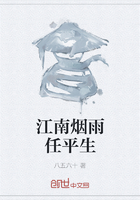'"Rise up, Sir Harry Dawe," he says, and, in the same breath, "I'm pressed, too," and slips through the tapestries, leaving me like a stuck calf.
'It come over me, in a bitter wave like, that here was I, a master craftsman, who had worked no bounds, soul or body, to make the King's tomb and chapel a triumph and a glory for all time; and here, d'ye see, I was made knight, not for anything I'd slaved over, or given my heart and guts to, but expressedly because I'd saved him thirty pounds and a tongue-lashing from Catherine of Castille - she that had asked for the ship. That thought shrivelled me with insides while I was folding away my draft. On the heels of it - maybe you'll see why - I began to grin to myself. I thought of the earnest simplicity of the man - the King, I should say - because I'd saved him the money; his smile as though he'd won half France! I thought of my own silly pride and foolish expectations that some day he'd honour me as a master craftsman. I thought of the broken-tipped sword he'd found behind the hangings; the dirt of the cold room, and his cold eye, wrapped up in his own concerns, scarcely resting on me. Then I remembered the solemn chapel roof and the bronzes about the stately tomb he'd lie in, and - d'ye see? - the unreason of it all - the mad high humour of it all - took hold on me till I sat me down on a dark stair-head in a passage, and laughed till I could laugh no more.
What else could I have done?
'I never heard his feet behind me - he always walked like a cat - but his arm slid round my neck, pulling me back where I sat, till my head lay on his chest, and his left hand held the knife plumb over my heart - Benedetto! Even so I laughed - the fit was beyond my holding - laughed while he ground his teeth in my ear. He was stark crazed for the time.
'"Laugh," he said. "Finish the laughter. I'll not cut ye short.
Tell me now" - he wrenched at my head - "why the King chose to honour you, - you - you - you lickspittle Englishman? I am full of patience now. I have waited so long." Then he was off at score about his Jonah in Bury Refectory, and what I'd said of it, and his pictures in the chapel which all men praised and none looked at twice (as if that was my fault!), and a whole parcel of words and looks treasured up against me through years.
'"Ease off your arm a little," I said. "I cannot die by choking, for I am just dubbed knight, Benedetto."
'"Tell me, and I'll confess ye, Sir Harry Dawe, Knight.
There's a long night before ye. Tell," says he.
'So I told him - his chin on my crown - told him all; told it as well and with as many words as I have ever told a tale at a supper with Torrigiano. I knew Benedetto would understand, for, mad or sad, he was a craftsman. I believed it to be the last tale I'd ever tell top of mortal earth, and I would not put out bad work before I left the Lodge. All art's one art, as I said. I bore Benedetto no malice. My spirits, d'ye see, were catched up in a high, solemn exaltation, and I saw all earth's vanities foreshortened and little, laid out below me like a town from a cathedral scaffolding. I told him what befell, and what I thought of it. I gave him the King's very voice at "Master Dawe, you've saved me thirty pounds!"; his peevish grunt while he looked for the sword; and how the badger-eyed figures of Glory and Victory leered at me from the Flemish hangings. Body o' me, 'twas a fine, noble tale, and, as I thought, my last work on earth.
'"That is how I was honoured by the King," I said. "They'll hang ye for killing me, Benedetto. And, since you've killed in the King's Palace, they'll draw and quarter you; but you're too mad to care. Grant me, though, ye never heard a better tale."
'He said nothing, but I felt him shake. My head on his chest shook; his right arm fell away, his left dropped the knife, and he leaned with both hands on my shoulder - shaking - shaking! I turned me round. No need to put my foot on his knife. The man was speechless with laughter - honest craftsman's mirth. The first time I'd ever seen him laugh. You know the mirth that cuts off the very breath, while ye stamp and snatch at the short ribs? That was Benedetto's case.















